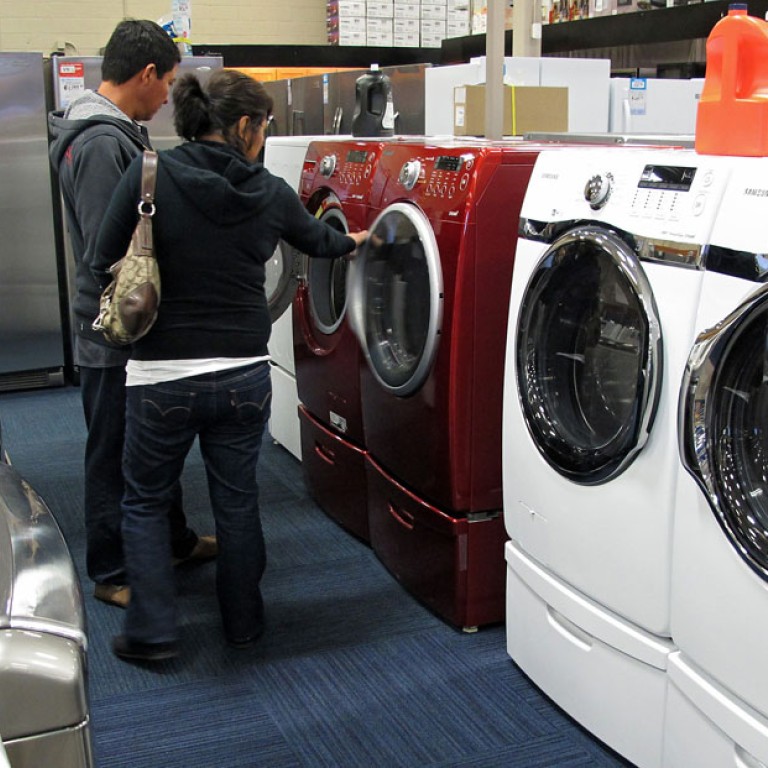
Americans set to throw out old durable goods and buy new ones
Americans have been holding on to their wobbly washing machines and sagging sofas even longer than their grandparents did 50 years ago, setting the stage for a rebound in consumer spending as old goods wear out.
Americans have been holding on to their wobbly washing machines and sagging sofas even longer than their grandparents did 50 years ago, setting the stage for a rebound in consumer spending as old goods wear out.
The average age of consumer durable goods - long-lasting items such as furniture, appliances and computers - is the highest since 1962, according to data from the Bureau of Economic Analysis dating to 1925. Among items Americans are keeping the longest: jewellery, wristwatches and home and garden tools such as lawnmowers.
Replacement purchases, overdue after the worst recession since the Great Depression, would boost the consumer spending that accounts for 70 per cent of the economy. Car sales are headed for their best year since 2007, showing Americans have the financial security to buy more expensive items, and economists say that means household-goods sales will pick up.
Such purchases are "postpone-able for only so long," said John Silvia, chief economist for Wells Fargo Securities, the biggest US mortgage lender. Increases in home values, along with gains in consumer confidence, incomes and employment from recessionary lows, make "people sense it's worth putting money back into that house" with purchases such as appliances, he said.
Cars and luggage were the only two of 17 categories the BEA tracks that saw a decrease in average age in 2012, according to the data released last month. The average age of jewellery was 5.3 years, the oldest since 1942, while that of home and garden tools was 5.1 years, the highest since 1961. The categories include products that last three years.
The data show a replacement cycle that started in the post-second world war era as people moved to the suburbs and made purchases to set up their households, said Neil Dutta, head of US economics at Renaissance Macro Research in New York.
The average age of goods rises during an economic downturn, and "towards the middle of an expansion, you tend to see these numbers start to come down, and that means people are buying more stuff", said Dutta, who projects durables purchases will pick up next year.
Appliance maker Whirlpool Corp expected bigger gains in 2014 from people replacing ageing goods, said Bob Bergeth, the company's general manager of national contract builder sales. "There is quite a bit of pent-up demand," he said.
